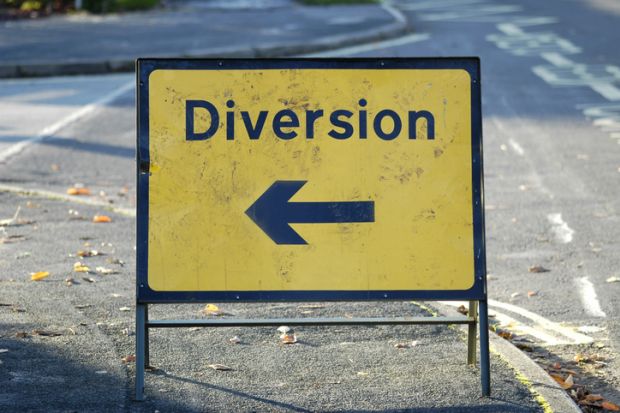The government should introduce a minimum entry threshold for access to higher education in England as part of changes to a university sector that “needs reform”, according to the Association of Colleges.
The AoC’s recommendation, made in a newly published overview of its submission to the review of the post-18 education and funding, would mean fewer people entering higher education – and more entering the further education colleges that it represents.
The call will likely be seen by universities as an attempted funding grab, but could chime with the mood of those in the Conservative party who believe that too many are entering higher education and too few entering vocational education – a group that may include Theresa May, who set up the review.
“The government’s post-18 funding and education review provides a great opportunity to rebalance the system of higher education,” says the AoC’s paper, “2030 and beyond: an upgraded post-18 education”.
“While the English university system, now centred on traditional three-year residential bachelor’s degrees, has many strengths, the system needs reform to ensure increased opportunities and routes for people to study flexibly, locally and throughout their lives.
“Colleges must be central to this reform if access is to be wide and fair. They cater to the needs of people all-too-often ignored by the mainstream and offer higher education across every community with high student and employer satisfaction based on high contact time and excellent outcomes.”
The government “should focus support to students via maintenance grants for those whose family income is below the free school meal threshold”, the AoC recommends.
“At the same time, the government should introduce a minimum entry qualification for access to bachelor degree higher education for those under the age of 21 while extending the period over which loans are repaid from 30 to 35 years to reflect longer working lives,” it says.
The 2010 Browne review recommended that the government set a minimum entry standard using Ucas tariff points each year, a recommendation that ministers did not adopt.
But the AoC’s submission, and perhaps those of others, will have put the idea of a higher education entry threshold on the radar of the current review, led by Philip Augar.
Julian Gravatt, AoC deputy chief executive, said that in higher education “Ucas data shows that the entry qualifications are going down and that there are more unconditional offers around. The government has clearly stated that it doesn’t want to reintroduce student number controls, so it [the proposal] is about setting a bar…We have a system at the moment that is a free-for-all, in effect.”
And the AoC says that the government “should change the remits of the Office for Students and Education and Skills Funding Agency, creating a new regulator operating with three parallel arms covering schools, colleges and universities with rules about mutual reliance and a more coherent approach on issues such as data collection and oversight.
“This would support more colleges to be able to achieve degree-awarding powers themselves and, where appropriate, deliver the whole suite of degrees and higher qualifications as well as the new technical qualifications.”
The AoC also calls for “an upgraded higher technical route”, to “provide a credible alternative route to a BA/BSc degree”.
The government “should reform grant, fee and loan rules to incentivise and support new one- and two-year courses at Levels 4 and 5”, says the organisation. “The same fee cap and loan/maintenance arrangements should be made available for this route for students of all ages – whether they are part- or full-time.”




